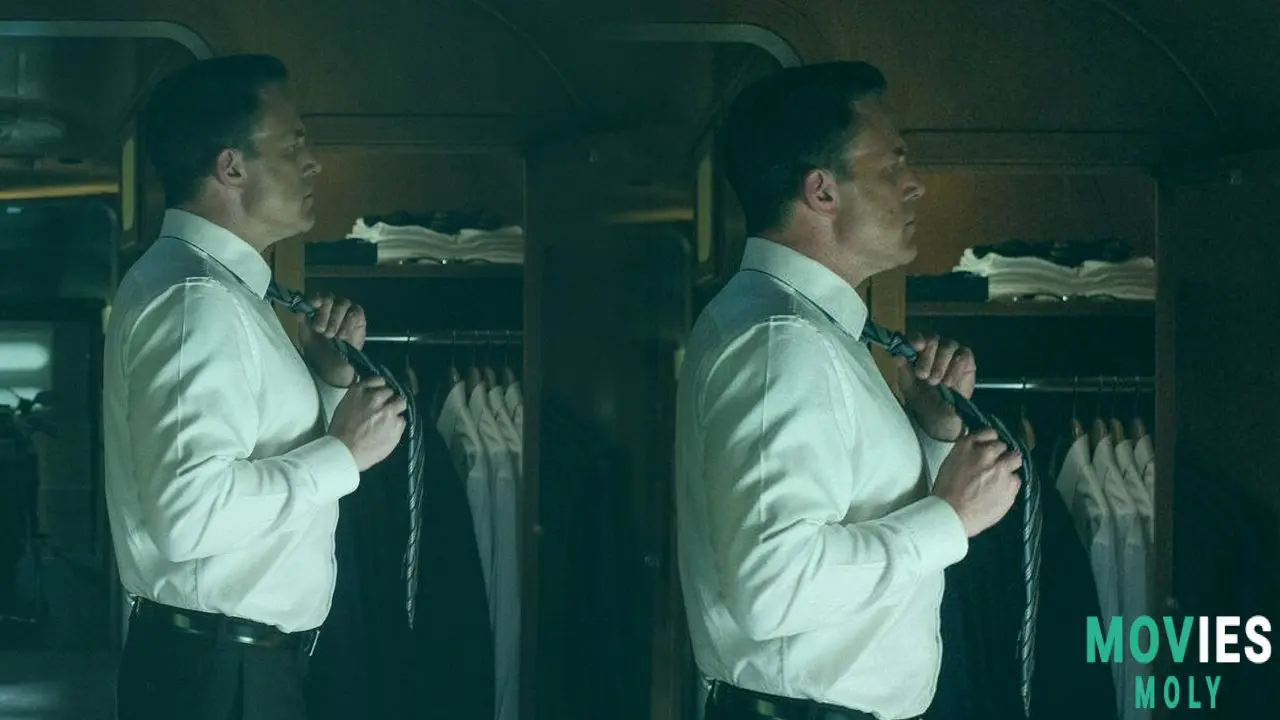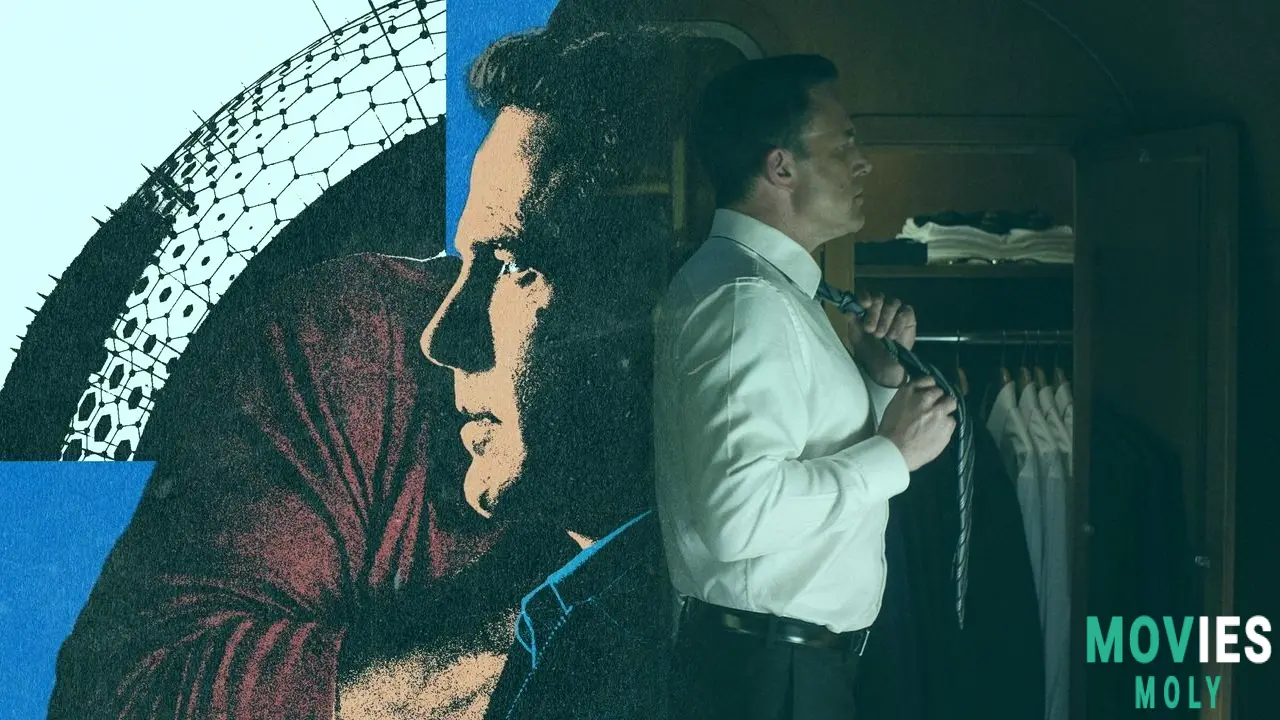"The Accountant 2" may not balance its tone, but it sure packs a punch when it steps into the honky-tonk ring.
Almost a decade after the surprise success of 2016’s The Accountant, Ben Affleck returns under the steely gaze of director Gavin O’Connor in The Accountant 2. While the original film cleverly blended autistic savantism, high-stakes financial crimes, and bone-crushing action into a flavorful genre mashup, the sequel doubles down on everything — and not always in the right proportion. Yet beneath the overstuffed plot and tonal whiplash lies a chaotic charm, a brotherly dynamic, and a few standout scenes that refuse to be ignored.
Christian Wolff’s Neurodivergence Is Still Treated Like a Comic-Book SuperpowerAffleck’s Christian Wolff remains the emotionally stunted, hyperlogical killer-for-hire who calculates death as effortlessly as balance sheets. The film never pins down his exact place on the spectrum, letting Wolff deflect with the line, “I’m just Chris.” It’s a small but telling moment — one that echoes the film’s uneasy dance between empowerment and caricature. Christian’s mind is still a weapon, and his social awkwardness is still played for both pathos and punchlines.
Enter Justine (Allison Robertson), Christian’s digital lifeline from his old neuroacademy, communicating through a British-accented AI avatar that feels lifted straight from Deus Ex. Her tech team of hacking prodigies rescues Christian more times than a Marvel hero in a mid-credit sequence. It’s hard not to see these kids as a missed opportunity — a sort of X-Men-lite squad without a single mutant line to call their own.
Brotherhood, Line Dancing, and One Glorious Honk-Tonk Showdown

Jon Bernthal’s Braxton — or Brax, as the film insists on calling him — returns not as the brooding enforcer from the first film, but as a talkative, emotionally volatile foil to Christian’s stoic precision. The dynamic feels like Rain Man reimagined through the lens of Logan meets Step Brothers. And while the script often stumbles (more on that later), Bernthal’s energy saves scenes simply by existing in them.
One scene in particular, buried deep in the second act, is pure genre-lodge gold. Directed and co-written with clear love for character over plot, the cowboy bunkhouse sequence gives us Christian Wolff — utterly out of place — mastering line dance steps through sheer math logic. It’s awkward, it’s endearing, and it’s tactical improvisation in its purest form. When Christian then instigates a bar brawl just to give Brax a moment of fun, the film briefly punches through its own fluff and lands something genuine. (Pro tip: Watch for the cowboy hat Brax swaggers off with at the end.)
Human Trafficking Plot Gets Lost in a Fog of Exposition and Pizzzgate Innuendo
If the first film earned points for turning accounting into something cool, the sequel trips over its own ambition. A murder in the opening scene drags Christian into a labyrinthine human trafficking investigation that never quite finds its emotional or narrative footing. The villains — a pair of generic slave traders named Burke and Cobb — feel more like red shirts than real threats. And the film’s uncomfortable flirtation with conspiracy theories undercuts its serious subject matter.
Worse still, the Latino characters caught in the crossfire are given almost no agency or voice. They exist as emotional props for Christian’s “rescuer” arc, which itself is propped up by a bleak subplot involving a missing family and a boy named Alberto, whose distant stare mirrors Christian’s own. It’s a visual echo that’s meant to resonate, but ends up feeling like emotional shorthand.
Christian’s Speed-Dating Misadventures Are the Most Delightfully Awkward Romance Beats
For all its tonal missteps, The Accountant 2 knows when to lean into its weirdness. Early on, we see Christian bomb spectacularly at a speed-dating event, delivering lines so deadpan they could freeze magma. “Eventually, this body will be a corpse,” he tells one hopeful. It’s morbid, it’s hilarious, and it somehow fits.
The subsequent honky-tonk date — where Christian math-figures his way through a line dance — feels like a detour into rom-com fanfiction. But it’s one that gives the character a glimmer of life beyond stony calculation. Even if the romance never takes off, these moments of social experimentation are a welcome break from the dialogue-heavy slog.
Gavin O’Connor’s Vision for a Trilogy Might Find Its Groove in the Third Installment
O’Connor has hinted that he envisions The Accountant as a trilogy, with the next chapter leaning into buddy-comedy territory. Given that, it’s tempting to see The Accountant 2 as a bridge — a messy, overambitious one — that’s more interested in testing dynamics than telling a tight story. The line dance, the corgi debate, the underpants intro — these are moments where the filmmakers let the characters breathe and have fun, even if the plot is dragging them through a human-shaped sausage maker.
“I’d watch this on an airplane twice if it had more scenes like these,” wrote one critic. And they’re not wrong. The film wants to be everything: gritty, emotional, clever, and cool. It ends up being uneven, but never boring.
Conclusion: A Flawed Sequel That Still Packs Enough Punches to Earn a Viewing
The Accountant 2 isn’t the tightly wound thriller that the original was, nor does it quite know what to do with its own mythology. But it dares to put its protagonist back in the ring — with a brother, a human trafficking plot, and an obnoxiously competent kid hacker squad in tow. It’s messy, talky, and occasionally tone-deaf, but it also gives us Ben Affleck doing math, fighting dirty, and line dancing into danger. And sometimes, that’s enough.






